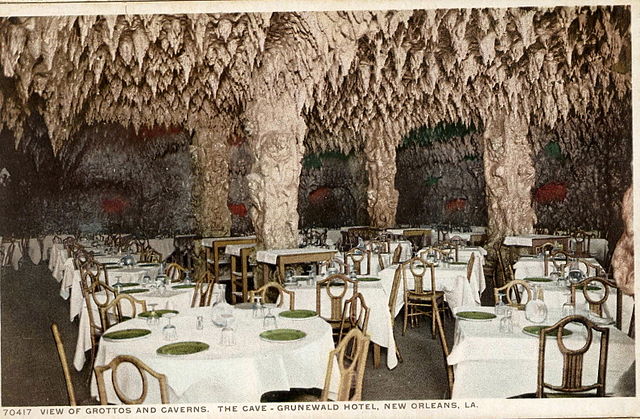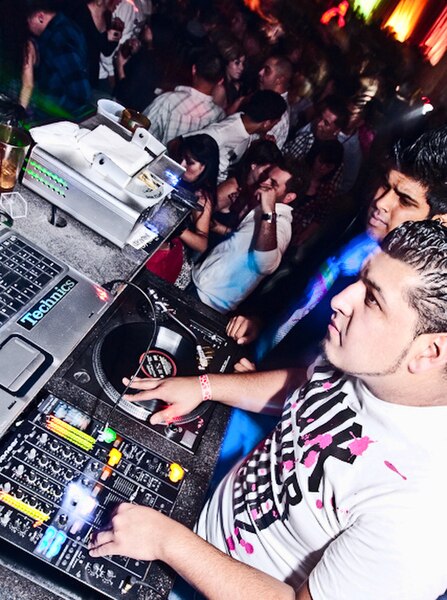A nightclub is a club that is open at night, usually for drinking, dancing and other entertainment. Nightclubs often have a bar and discothèque with a dance floor, laser lighting displays, and a stage for live music or a disc jockey (DJ) who mixes recorded music. Nightclubs tend to be smaller than live music venues like theatres and stadiums, with few or no seats for customers.
Two DJs perform at the nightclub Space on the island of Ibiza in 2015
"The Cave" in the basement of the Gruenwald (later Roosevelt) Hotel, New Orleans opened in 1912; said by some to be one of the first nightclubs in the United States[by whom?]
The "Kakadu" (1919–1937), a Pre-World War II nightclub in Berlin, offered a bar, a dance floor, live music played by jazz band, and cabaret.
A disc jockey (DJ) mixing vinyl records on turntables (Inland Empire, 2009)
Night or nighttime is the period of darkness when the Sun is below the horizon. The opposite of nighttime is daytime. Sunlight illuminates one side of the Earth, leaving the other in darkness. Earth's rotation causes the appearance of sunrise and sunset. Moonlight, airglow, starlight, and light pollution dimly illuminate night. The duration of day, night, and twilight varies depending on the time of year and the latitude. Night on other celestial bodies is affected by their rotation and orbital periods. The planets Mercury and Venus have much longer nights than Earth. On Venus, night lasts 120 Earth days. The Moon's rotation is tidally locked, rotating so that the near side of the Moon always faces Earth. Nightfall across the near the side of the Moon results in the lunar phases visible from Earth.
Night sky over a bog in Estonia, with light pollution visible on the horizon
The drainage basin of the Nile river and delta at night
Sunset on Mars
Nocturnal insects drawn to an artificial light








